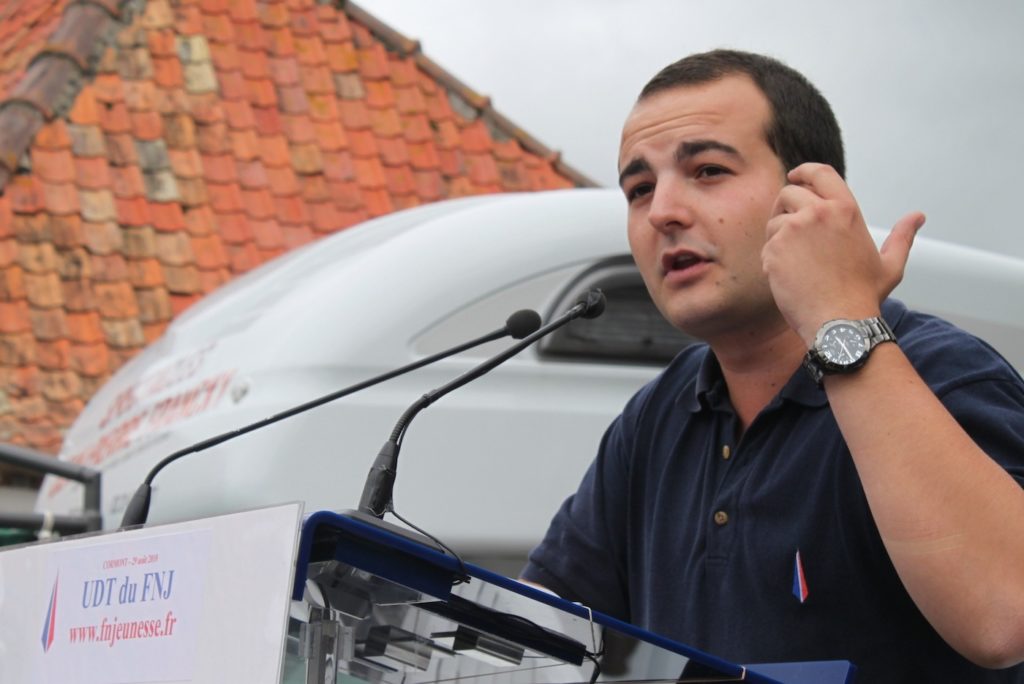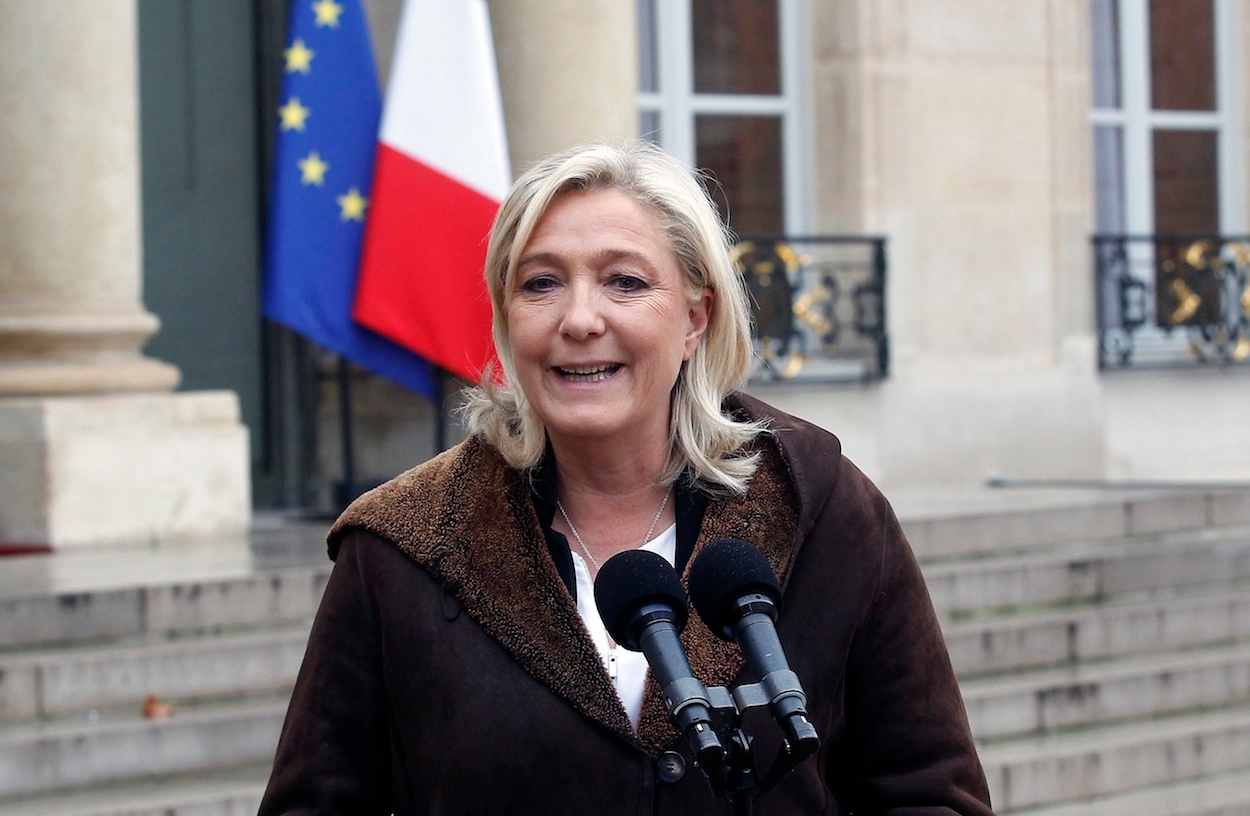(JTA) — At 27, David Rachline is the youngest senator in the history of France’s Fifth Republic and a rising force within the country’s third largest party.
A university dropout and the son of a Jewish Socialist Party activist, Rachline crushed his opponents in the 2014 mayoral elections in the city of Frejus. Six months later he was elected to the French Senate.
Rachline is part of a new generation of far-right politicians. His Jewish roots and wunderkind aura have helped make him the poster child for efforts to rehabilitate the National Front, a far-right party long shunned due to the open xenophobia of its founder, Jean-Marie Le Pen.
Under Le Pen’s daughter, Marine Le Pen, the party has softened its image, in part by distancing itself from the elder Le Pen, a political provocateur who has been convicted multiple times for inciting racial hatred and once famously claimed that the gas chambers were but a “detail” of World War II.

David Rachline speaking at a National Front convention in Cormont, France, in 2010. (G. Bouchet/National Front)
On April 9, a series of dramatic and escalating clashes between the Le Pens came to a head when Le Pen demanded for the first time that her father resign his party posts and drop his candidacy in regional elections. Jean-Marie Le Pen said he would not run this year, but told Reuters on Tuesday that he will not give up his party positions.
“National Front is behind Marine Le Pen, her political line and her appointees,” Rachline wrote on Twitter hours after the National Front leader made her demand.
Stephane Ravier, a French senator and another member of the party’s young guard, went further, attacking Jean-Marie Le Pen for “jeopardizing the party” and wishing him “a happy retirement.”
The feud has exacerbated a fissure in the party between older activists loyal to Jean-Marie Le Pen and a new generation of far-right politicians hungry for mainstream respectability. Under the younger Le Pen, who replaced her father as party president in 2011, the National Front has achieved unprecedented success at the polls, and even made inroads among French Jews, some of whom have been won over by her harsh rhetoric against Muslims.
According to a poll last year among 1,095 self-identified Jews, the National Front earned 13.5 percent of the Jewish vote in 2012 presidential elections, more than doubling its share from the previous presidential contest five years earlier.
Le Pen has insisted repeatedly that the real enemy of French Jews is not the National Front but Islamic fundamentalism, against which she has claimed the party is “your best shield.” She has also chastised National Front figures who made anti-Semitic statements. Last year, Jean-Marie Le Pen’s blog was temporarily taken offline on Le Pen’s orders because he said in a post that a Jewish singer should go “in the oven.”
Yet many French Jews remain suspicious of the National Front, noting that until this month Le Pen kept her father as a candidate and honorary president of the party. Her recent break with her father has not changed the official policy of the CRIF, the umbrella group of French Jewish communities, which has long maintained that Jean-Marie Le Pen is a dangerous figure unworthy of elected office.
Le Pen’s break with her father is “indeed a dramatic occurrence,” CRIF President Roger Cukierman told JTA, “but one that occurred at the top, with little effect on the main body of what remains a xenophobic party.”
Still, there are signs that Jewish opposition to the National Front may be softening. In 2011, the Jewish radio station Radio J extended an invitation to Le Pen to appear on its Sunday morning political program — something the station had never done for her father — though it was forced to cancel the interview amid Jewish community outrage. Last week, one prominent Jewish intellectual urged the community to reconsider its policy of avoidance.
“To advise France’s Jewish establishment, I’d argue against reducing National Front to what it has been until now,” said Daniel Dayan, a noted anthropologist and emeritus director of research at France’s National Center for Scientific Research.
Dayan said the party is changing and the community must take that into account.
“France’s Jewish establishment may find itself facing a National Front in a position of power before long,” he said.
Under Le Pen, the National Front has achieved record success at the polls. In 2012, a year after Le Pen replaced her father as party leader, she received 17.9 percent of the vote in the first round of the presidential elections, surpassing her father’s best electoral result from 2002.
In last year’s elections for the European Parliament, the National Front won 24.8 of the vote, compared to 6.3 percent in 2009, when Jean-Marie Le Pen was still boss. In last month’s regional elections, National Front received 22.2 percent of the vote in the second round of balloting, edging the ruling Socialists of President Francois Hollande and finishing behind only the center-right UMP.
To Dayan, the surge in popularity is changing the party from within.
“Telling anti-Semitic jokes in a party made up of six members and someone’s grandmother is one thing, Dayan said. “Leading a movement with 10 million supporters is another.”
JTA has documented Jewish history in real-time for over a century. Keep our journalism strong by joining us in supporting independent, award-winning reporting.






